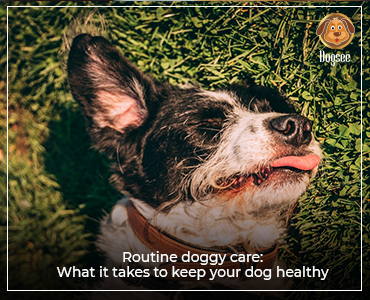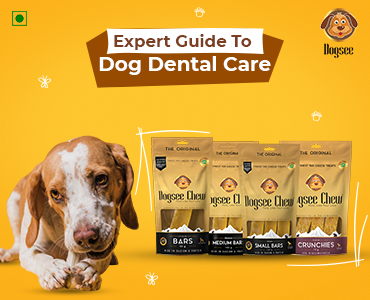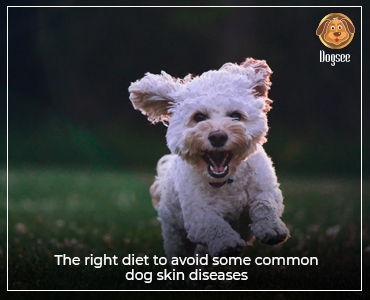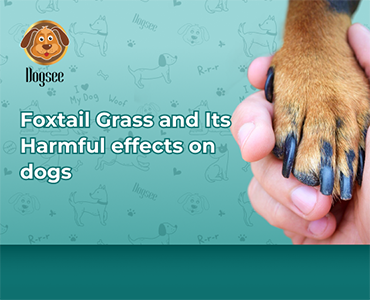
If your dog is acting all weird and experiencing irritation, there is a high chance that your pooch is suffering from worm infestation. Worms can often cause a variety of health concerns as they're highly contagious. Keeping your dog’s health as a top priority and feeding him with natural and soft dog treats, it is important that you identify and nib the attack of these creatures in the bud. And so here are the twelve most common symptoms of worms in dogs that will help you save your pooch from a lot of trouble.
Vomiting: Dogs infected with worms are most likely to throw up. In most cases, you’ll be able to spot worms in their vomit. Dogs with whipworms may vomit a yellow-green substance. Always keep in mind that vomiting can also be triggered by other health problems like indigestion. So it’s better not to risk it and let your veterinarian know so that a diagnosis can be conducted. Give him healthy Dogsee Chew treats and let him feel energized.
Change in appetite: Worm infestation can disrupt your pet’s appetite either by making your dogs stop eating or start overeating. If you seem to notice that your dog's appetite has suddenly changed, understand that he must have come in contact with the worms. This can also cause him to suddenly be more hungry because worms are feeding on nutrients from his food.
Scooting: Scooting is when your dog slides their bottom across the floor or carpet. They do this to relieve themselves from the itching caused by worms. Scooting is as bad for the floor as it is for your pet since it leaves bacteria, a bad odor, and even feces on the floor. In addition, your dog may bite or lick his bottom to reduce the itching caused by the worms.
Diarrhea: Worms in your dog’s system can result in canine diarrhea and soft stools. Prolonged diarrhea can result in dehydration and hence it is important to immediately visit the vet once you figure out such signs. Dogs carrying hookworms may experience painful stools with tints of blood. If left untreated, this can lead to chronic bloody diarrhea. Too much loss can result in severe health conditions like high blood pressure and heart failure.
Dull Coat: A thick and shiny coat indicates a healthy dog. If you notice that your pooch’s coat has begun to dry out and shed significantly, it is best that you seek the help of a vet and find the perfect ailment as this is a common symptom of worms in dogs.
Potbellied appearance: If you notice that your puppy’s belly seems bloated or has a pot-bellied appearance, it’s most likely that he has contracted worms while in his mother’s womb or while being nursed. This is a very common symptom of worms in puppies. Roundworms are the ones that cause bloating and adult dogs are also susceptible to this symptom. Regardless, it is important to consult a doctor and conduct a thorough examination. Use Turmeric Small Bars to soothe his upset stomach and distract his worried mind.
Lethargy: If you notice your dog’s energy drop all of a sudden and showing signs of lethargy, the probable culprit to this could be the parasites feeding on your pup’s nutrients. Hookworms are so dangerous that they could cause your puppy’s death due to blood loss.
Coughing: Dogs with heartworms will have a dry and persistent cough. Your dog may cough after exercising if he has heartworms. This is due to the heartworm parasites migrating into the lungs, causing obstruction of oxygenated circulation. Dogs with heartworms will cough when the roundworm larvae travel to the lungs. Coughing will be a symptom in dogs with hookworms only if the condition is severe. If your dog is coughing more frequently and weakly, you should see a veterinarian right away. Many cases of worms in dogs can be quite serious, even fatal.
Skin allergy or irritation: Dogs who exhibit skin irritation may have a significant worm infestation. A rash may appear as a result of such skin irritations. You may even notice your dog scratching himself more frequently.
Visible worms in fur or fecal matter: Some worms, such as tapeworms, may appear as minute moving segments in your dog's fur or in the area surrounding his anus. Roundworms are frequently seen as signs of worms in dogs' poop. These worms will most likely resemble moving pieces of rice or, if dry, hard yellow specks.
Conclusion
If you suspect these symptoms of worms in your dog, don't hesitate to take him to the vet. Most intestinal worms are easily curable with prescription medicine. Heartworm disease, on the other hand, is far more difficult to treat and upsetting for your dog to deal with. Heartworms can be prevented by administering a monthly prophylactic medicine, which also protects against other worm illnesses. Deworming must be strictly administered right from puppyhood as a precaution and shield from these ridiculous symptoms and any further health conditions.
 HELPFUL0 people found it helpful
HELPFUL0 people found it helpful
Related Blogs
Subscribe to Our Blogs
and never miss on the latest update!


















